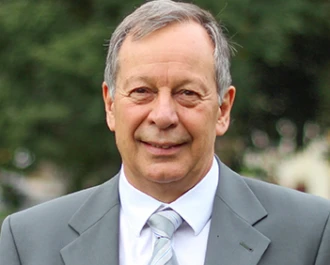
The National Breast Cancer Foundation (NBCF), the largest not-for-profit funder of breast cancer research in Australia committed to ending deaths from cancer, is celebrating its 30th anniversary.
Since 1994, NBCF has invested $232 million in 642 projects. In this time, the death rate from breast cancer has reduced by over 40%.
Associate Professor Cleola Anderiesz, CEO of NBCF said: “Back in 1994 when NBCF was established, the five-year relative survival rate for breast cancer in Australia was just 76%. Today, this has improved to 92%. And during this same period, the death rate has reduced by over 40%. We want to ensure that a diagnosis of breast cancer doesn’t lead to a death and research is key to achieving this. We are proud to have played a role in improving outcomes to date, and we recognise that NBCF’s focus on Zero Deaths from breast cancer is as important as ever.
From its inception, NBCF has helped build careers and retain the brightest research minds in Australia, enabling breast cancer research to thrive.
NBCF has funded more than 1,800 Australian researchers from 120 institutes throughout Australia supporting researchers to make discoveries that have help reduce deaths from breast cancer.
In the last ten years alone, NBCF-funded researchers have published more than 2,300 science discoveries in science/medical journals, helping to improve our understanding of breast cancer and how we may better prevent, detect, treat and stop the progression and recurrence of this disease.
Professor Jeff Holst, NBCF-funded researcher said: “The National Breast Cancer Foundation has been the driving force funding breast cancer research and breakthroughs in Australia. They fund cutting edge research projects including critical salary support for young investigators. If it were not for a NBCF fellowship in 2012-2015 when I was in the early stage of my career, I would have had to quit research and start from scratch to find another career.”
NBCF-funded researchers have been nationally and internationally recognised for their work, collaborating with researchers to create knowledge advancements that have a positive impact on all those affected by breast cancer around the world.
Research has been critical to driving this improvement in breast cancer outcomes, and the in the last 10 years, research funded has also influenced policy and practice on 50 occasions both locally and internationally leading to a range of positive service delivery, health, and economic impacts. Examples of these major contributions include:
- Professor Melissa Southey and Dr Tu Nguyen-Dumont have significantly advanced the understanding of genes associated with breast cancer risk. Professor Southey and Dr Nguyen-Dumont identified genetic errors in three genes – ATM, CHEK2 and PALB2. Their research has influenced genetic testing, with national guidelines now recommending the inclusion of these genes in genetic testing and cancer risk management.
- In 2014 Professor Sherene Loi participated in an international clinical trial that treated the first Australian with triple negative breast cancer (TNBC) with the immunotherapy drug pembrolizumab. The positive outcomes of this trial and her continued contribution to clinical trials investigating the safety and efficacy of pembrolizumab in TNBC, led to pembrolizumab being listed on the Pharmaceutical Benefits Scheme in 2023 for the treatment of early and late-stage TNBC.
- Professor Nehmat Houssami contributed to the development of the international consensus guidelines on surgical margins, which informed surgical oncologists about appropriate surgical margins helping to avoid unnecessary repeat breast operations for women with early-stage breast cancer. As NBCF’s 10-year Chair in Prevention, Professor Houssami is also implementing a long-term research program, addressing breast cancer screening and prevention with the ultimate aim of reducing deaths.
“For 30 years, NBCF’s commitment to funding world-class breast cancer research has led to extraordinary discoveries,” said Associate Professor Cleola Anderiesz. “Discoveries that have fundamentally transformed our understanding of breast cancer and how we improve outcomes for people with this disease. These discoveries will continue to benefit people who are living with breast cancer now and those who will be diagnosed in the future. We would like to thank our supporter community and dedicated researchers, without whom this research wouldn’t be possible.”
While the significant progress in reducing deaths from breast cancer is to be celebrated, the number of Australians diagnosed with breast cancer continue to increase at a rate greater than our population growth and, nine people a day still die from breast cancer in Australia.
To build on our strong research foundations and accelerate progress of breast cancer research, NBCF launched its Pink Horizon Research Strategy. This focus and investment of up to $125 million over the next five years is intended to bring NBCF closer to achieving its ambitious vision of Zero Deaths from breast cancer, and help reduce the 16,000 deaths from breast cancer in Australia that are otherwise expected in this time.
As part of its 30th anniversary, NBCF has released an Impact Report celebrating the progress and advancements in breast cancer research to date. The Impact Report highlights key research milestones and outlines NBCF’s focus to continue to work towards the ambitious vision of Zero Deaths from breast cancer.
More News Articles
View all News


